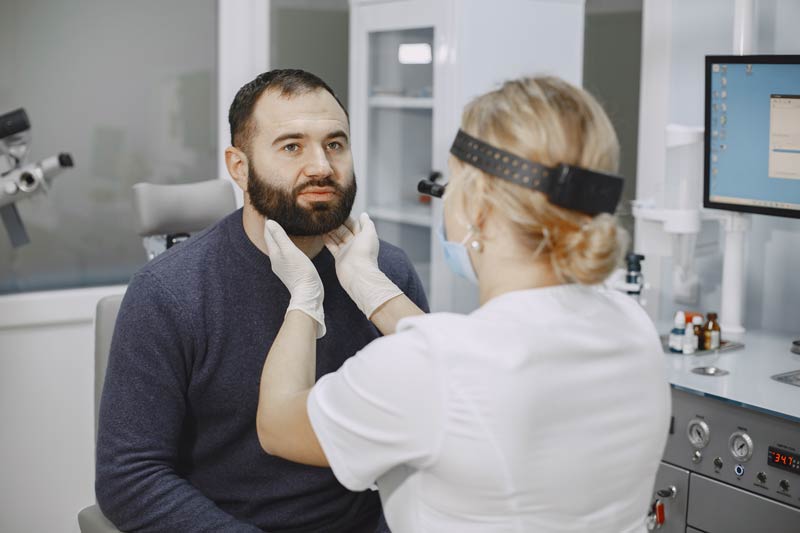What is Sinusitis?

What Causes Sinusitis?
What Are the Symptoms of Sinusitis?
Individuals suffering from sinusitis experience a variety of cold-like symptoms such as nasal congestion and discharge, postnasal drip, sore throat, facial pressure and swelling, loss of smell and taste, headache, fever, fatigue, and bad breath.
Complications can include asthma attacks, meningitis, vision problems, aneurysms, and stroke.
How Is Sinusitis Diagnosed and Treated?
In addition to a physical examination and a review of your medical history, your doctor will inspect your nasal passages for polyps and other abnormalities and check for inflammation and a buildup of fluid. Additional tests utilizing nasal endoscopy, CT scans, MRIs, and allergy tests can be used to help confirm the diagnosis.
Treatments will vary depending upon the severity of your sinusitis and whether it’s an acute or chronic condition. Saline nasal sprays and corticosteroids are useful for rinsing your nasal passages and relieving inflammation. Decongestants are a good short-term solution, but extended use can actually worsen the condition. Antibiotics are usually prescribed for bacterial infections.
Antihistamines, nasal steroid sprays, saline washes, and oral steroids all provide long-term relief. More permanent solutions such as immunotherapy (allergy shots) or surgery can bring relief to those suffering from chronic sinusitis.




















